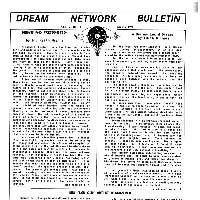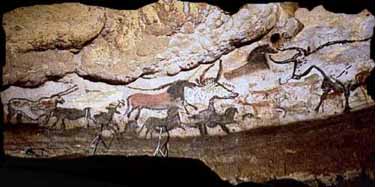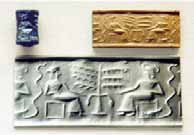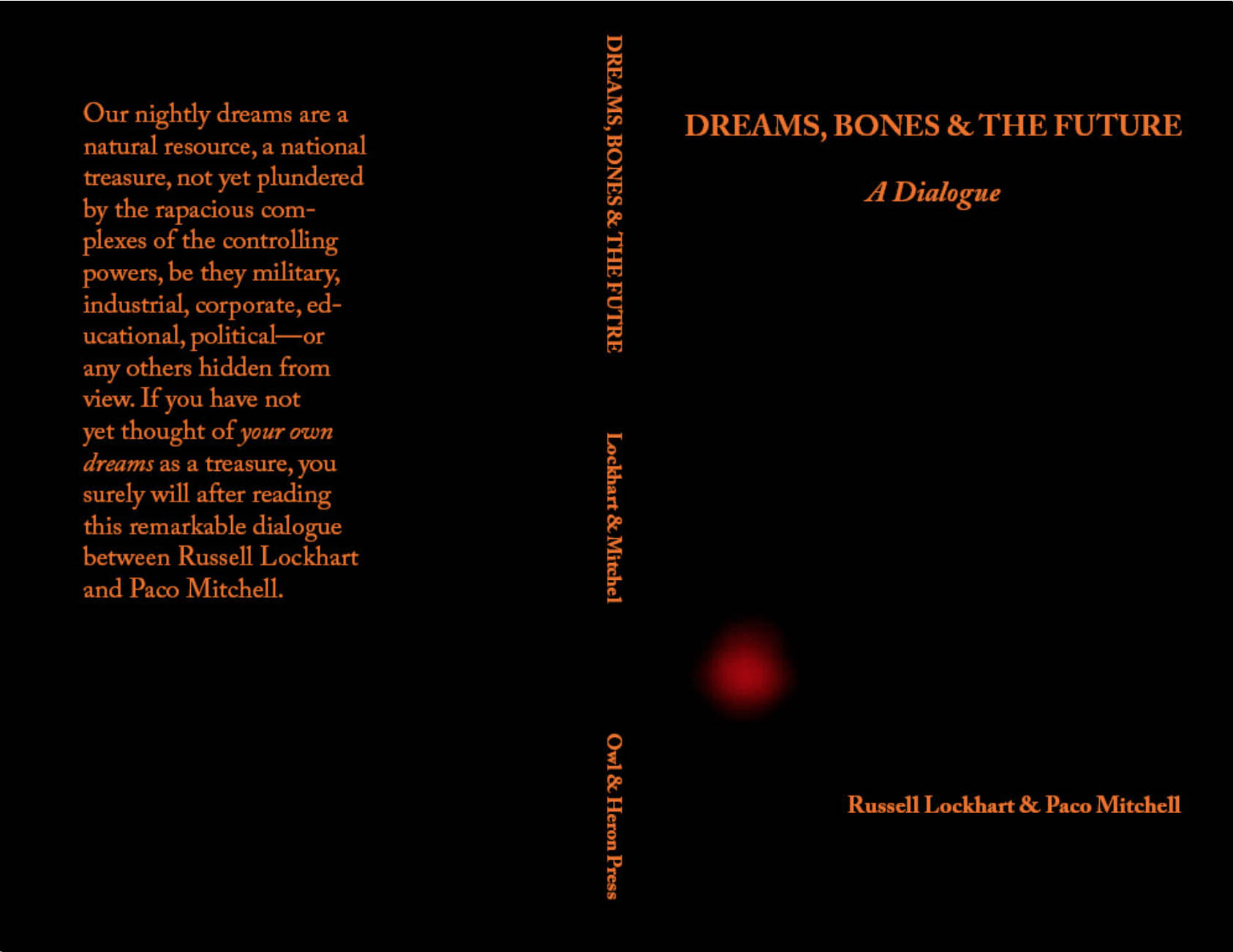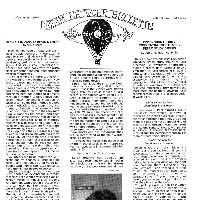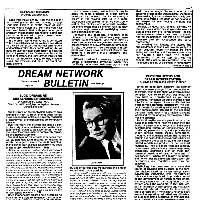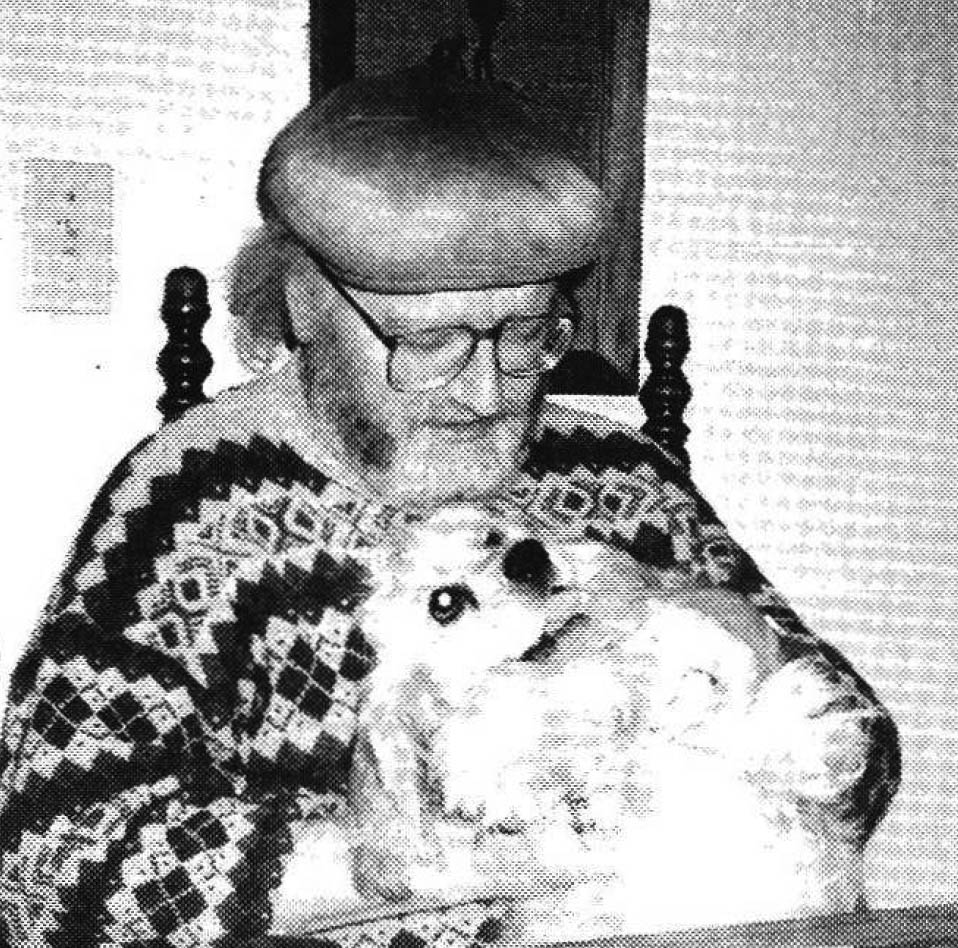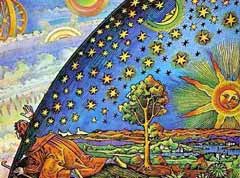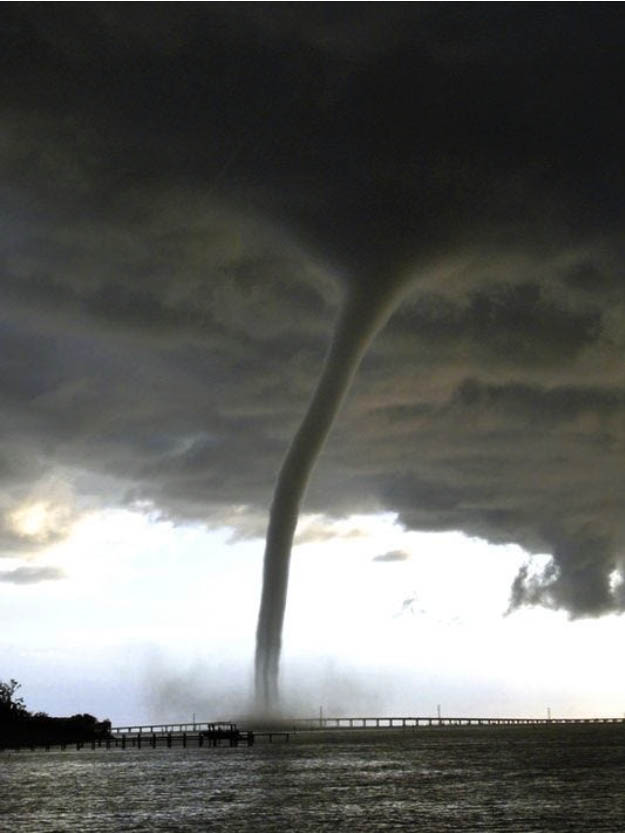"The true history of the spirit is not preserved in learned volumes but in the living psychic organism of every individual." -C.G. Jung C.W. 11,56
I. Psyche Speaks
It is quite remarkable, because it is so rare, to see in public such a collection of unattributed, uncommented, unexplained, unanalyzed, uninterpreted dreams as those on exhibit in the pages of Dream Network this past year. As your editor said in introducing this unusual gathering, she wanted "psyche to speak for itself" in response to the journal's research calling for "dreams which belong to the larger community." This simple appeal reaped a rich and varied bounty.
Yes, psyche has spoken! But to whom? To what end? Do not expect me to answer these questions by interpreting or analyzing the dreams in this exhibition. That would violate the spirit with which they were gathered. Instead, imagine we had been viewing these dreams in silence and began speaking with one another. A conversation. For some reason, in the face of these dreams, I want to speak in whispers, though these dreams stir strong passions in me. Of course, my murmurings on these pages are rather one sided. So I'll just set off and see what comes.
II. Dreams as Gift & Voice of Source
What has been gathered together in this harvest called "Dreaming Humanity's Path," this dream gallery of psyche's speech? First, we find dreams experienced as gifts given to an audience of one (the dreamer) arriving unbidden, seemingly from some dimension beyond the personal and gifted again to a larger audience .... we, the community of the journal's readers. As the word itself reveals (com-, "together"; munnus, "gift"), it is precisely this circulation of gifts, this "gifting together" that identifies the essential nature of any genuine community. In some quiet time you might want to ponder how to keep such gifts circulating.
Second, we find dreams experienced as big dreams, dreams of strikingly numinous intensity, the dreamer impelled to share the dream with another, as if following some ancient imperative... perhaps even one of evolutionary significance.
"This dream is not yours alone; it belongs to others as well. Tell it!"
Surely one intention of such dreams and their telling is to stir us to wakefulness, to choicefull participation in the making of our future.
Third, the dreamer of the big dream experiences a strangely palpable contact with "the source" of that dream, and in gifting the dream to others, this sense of contact and thus potential community with "the source" is enlarged. All readers and hearers of the big dream may become directly or subliminally more related to "the source" of such dreams. I'll leave it to the reader to imagine the social and political consequences of this.
Fourth, this "source" is not experienced as personal or individual. One feels a bit shy even at saying "my" dream. Rather, there is a sense of something "sent", as if by courier, a meaning-filled message from underneath or beyond the personal. There is as well a definite feeling that it is this "rhizomic" dimension in which we all may be connected in some mysterious and unfathomable way. We can't say much about this "source" with any assurance. And while there are many names for this source, I will refer to it here simply as the mythic realm. I think the reason why such dreams are sensed by the dreamer as having immediate significance, not only to the dreamer but to everyone, is because such dreams are intimations of myths in formation, myths that will underlie the fabric of all that we are and all that we do, and all that we will become. Such dreams are not just recyclings of old myths or retellings in new clothes, but new myths that will be the structure and dynamics of our future.
The dreams collected here might be titled more accurately, "Dreaming Humanity's Paths", for it is surely more meaningful to think not of one fixed future, but of many possible futures. What our conscious role in such futures might be, what determinant role our choices might have, could be informed by big dreams in a way that we have scarcely allowed ourselves to imagine.
III. Dreams & Community
The reason why interpretation fails big dreams is that interpretation tends toward understanding even big dreams only in terms of what already is known, while the big dream is speaking, as Jung said, in terms that are not yet fully known. The big dream cannot be fully netted by interpretive approaches because it speaks in a language (or languages) not yet fully known. In this sense, we must always be students of the big dream, trying always to learn the language of the mythic realm, to learn psyche's speech.
In earlier times, when communities were truly local, such dreams were conveyed to "the elders" and if judged to be big dreams, they were then conveyed to all members of the community. This way with the dream played a crucial role in engendering the fabric of community life because such dreams became the source of and foundation for the myths of the people. In the present time, this natural sense of sharing the big dream with others is so rare we have very nearly lost all sense of the crucial importance of this. We no longer even have rituals for doing so. We need to relearn this art.
In the contemporary world, how do such dreams find their way into community? What and when does the larger community ever hear of such dreams? Where in the world do we hear these messages from the mythic realm in a collective sense? I hear nothing of this on the TV talk shows. I see nothing in the newspapers. I do not hear our "elders" or world leaders telling us of big dreams.
This is where Dream Network is doing important work and where the dream sharing groups and communities have their ultimate significance. We have no larger forums for hearing our big dreams. In Psyche Speaks, I wrote:
"...to have psyche's speech heard only in consulting rooms will not suffice in the time to come; psyche's voice must be heard in the world, enacted and incarnated in the world."
How I would love to see a journal, a TV program, a radio show, even a web site in which only the dream text itself is presented, a cultural repository for big dreams. Seeing these dreams in the pages of Dream Network is like a seedling for such possibilities. We need places to hear big dreams. As a community we can contribute to this need by continuing to send in our big dreams to Dream Network. Something will come of this!
IV. Alterity, Fate & Dream's Desire
We can't say much about "the source" except to emphasize its strong sense of alterity, its otherness. It is this alterity that the big dream brings to our awareness and, I believe, stirs a yearning, a deep desire, an eros. Part of this is reflected as noted above in the impulse to share the dream with others. But telling others, as deeply satisfying as this is, is not sufficient. Something else is at work on us in relation to the big dream. A hint as to what this might be was offered to me in a dream several years ago. In it, I found written on a slip of paper, poem like:
A dream wants a dream
>
A poem wants a poem
As much as I enjoy interpreting dreams, teaching others to learn and exercise the craft of interpretation, and even as an analyst getting paid for it, I know that interpretation is not the desire of the dream. The dream wants a dream! So, now I imagine that the purpose of the "small" dream is to make us conscious and more complete (that is through resolving complexes, integrating the shadow, developing our human relatedness), essential, crucial and necessary tasks.
And the purpose of the big dream? Its purpose is twofold:
To engender community through the medium of telling the dream, that is, dream calling to dream, the dream of one desiring the dream of the other, and
To create a sense of task, the sense of what the dreamer is for in this life, and from that, for the dreamer to bring the manifestation of that to some realization in actual life and therefore into the reality that is the world.
Perhaps this sense of human community may become realized in the Aquarian age, the age of the water bearer. This is an image of each one of us in some unique contact with "the source" and from that contact bringing something back to the larger community. Part of that "bringing back" is the dream itself and part of our contribution to the weaving of the threads of community is to tell our big dreams to one another. In this way, the "otherness" in the big dream is able to call forth the "otherness" in others through engendering dreams in others.
The dream wants a dream. But our task is not complete by telling only. The big dream always imposes some task on the dreamer. That task has a great deal to do with whatever we mean by "fate." It is the work of the dreamer to bring into presently lived life some manifestation of the big dream. That manifestation, too, will likely be shared and will constitute, through its giftlike circulation, a vitalizing presence in the world.
V. Dream-Formed Communities
Klee said he didn't want to give talks about art because people would listen with their ears and not their hands. And if one were to listen with one's hands? Of course! Listening hands would be painting hands! A painting wants a painting! That's why Baudelaire said the only proper criticism of a work of art is a work of art. Art wants art! This desire is not ego's desire but the desire of the "other" in us for connection to " the other" in our fellow beings. It is out of this connection (deep psyche to deep psyche) that there could arise a basis for community that would be generative and give birth and manifestation to the deepest intentionality of the psyche. This is what I see as the ultimate significance of sharing big dreams: a dream-formed community. This is not a picture of only single, isolated individuals individuating apart from the world.
The purpose of individuation cannot be isolation. Rather, the purpose of individuation must be for an individual to develop sufficiently to hear the "deep song" of the psyche, to bring into the world what is experienced there, and to pour this into the living history of humanity. This in turn will call to the deep psyche in others and stimulate this self-same process. It is the iteration of this process across individuals that is the promise of the postmodern spirit. The intent is not narrow, narcissistic individualism, but to so engage individual development so that the common pool becomes a rich resource for the nourishment and growth of each and everyone. As Jung saw, "individuation gathers the world to itself."
VI. Forming the Vessel
A newspaper published recently a story of two women artists who decided to correspond only in painting. So, one woman sent a painting to the other. After living and being with that painting for a time, that woman painted her response and sent it off. Back and forth, paintings only. Twenty of these paintings are now on exhibit in a gallery. Very instructive! For anyone drawn to dream sharing, corresponding in dreams (just the dreams, not the interpretation!) may open up many new and unexplored possibilities. As a community we might try just this and see what happens. Or, in your dream sharing groups try this. Sit for a time in silence and bring to mind dreams or visions that had a powerful impact on you. When you feel ready, simply speak out an image from such a dream. Others will do the same. Round and round, speaking out only images from dreams, no comment, no interpretation, no explanation. Telling images without the apparatus of explanation engenders a powerful field effect in the group, a palpable dimensionality that begins to generate an enormous eros. One gets the impression of a vessel of information, a place of potential incarnation of something beyond the personal aspects of the dreamers in the circle. The potential of this is unexplored. And waiting.
What is certain, however, is that working on the group's aspirations, difficulties, troubles, issues, or other concerns following such an experience, is remarkable. We don't generally seem to have much faith in the idea that the dream (like a story, like art of any sort) can engender its effects all by itself. We seem addicted to the idea that for the dream to have its effect it must be interpreted and explained.
This would be like insisting that a poem always be published with its explanation, a painting always viewed along side its critique. That is nonsense. The whole point of the poem, art, and yes, the dream too, is to "get through," to achieve some conception in the psyche of its audience. It is what happens next that is crucial, not what we say about it, but what it engenders in us as response from our own depth. A dream wants a dream. A poem wants a poem. This nexus of relationship: dream to dream, poem to poem, painting to painting, is largely unexplored territory. What did you dream in response to those "naked" dreams in the pages of Dream Network?
It's something like the above that leads me to imagine a future in which the dream once again takes on a value and role even in the centers of power. Is such a thing possible? As I watch the leaders of the world gathered together in a truly extraordinary way at Yitzhak Rabin's funeral, how I would love for them to sit circled with one another and with nothing else as agenda, simply tell the images from their dreams, round and round, until they feel that dimensionality of alterity. Such experience could become a basis for experiencing what "the source" has to say about what needs to be manifested in the future. In this, they and others would discover that the basis of their rejection of "the other" in human form, is a result of not genuinely experiencing "the other" in mythic form. All true experience of the mythic dimension generates an eros of inclusiveness. The failure of this generates the power of exclusiveness and becomes the secret source of the ubiquity and power of prejudice.
VII. Dream as Subversive
In these times there is, on occasion, a yearning for something that truly punctures our consciousness, something that breaks through the increasingly addictive fog of image-driven consumerist miasma. Occasionally, world events (atrocities, assassinations, natural calamities), often times local events (killings close to home, the rage at horrific secrets revealed), sometimes personal experiences (a sudden loss, a reversal, a tragedy) break through this fog. Still, so much of this is now mediated by media, rather than direct experience, that its shock value, its potential of penetration, is lessening remarkably in our lifetime. It's as if we could arrive very shortly, perhaps more shortly than we care to imagine, at having TV cameras showing us bodies being delivered to the ovens, or the killing fields, while we sit silently couched to inaction, hungering for the next scene. When reality becomes entertainment what then?
Today, we are double yoked to insatiable work and endless entertainment. Underlying all of this is the commodification of desire. This is what is whipping us along. I continue to believe that the last holdout to this process, that which will retain the power to puncture our increasing insensibility, will be the dream. I continue to believe that the dream will be the last resistance to the devouring dynamics of money. And because of this, we may be edging close to a time when it will be a crime to dream and there will be every effort made to control this uncontrollable access to a source beyond the world of power. The dream is always subversive of the status quo, particularly the big dream. The dream will always be outlaw, always alien. At some point the dream will threaten the established order, as that order becomes ever more rigid and confined. As more and more of the population becomes medicated as a means of coping with the increasing density of events and their demands on our time and attention, the dream will begin to fade away as is the fate of dreams under most medications.
Power will attempt to appropriate the dream. Already this appropriation is happening in language where "dream" is now the buzzword in advertisement. Listen to this add for Compuserve: "What do you dream of doing? Does it involve work? Or travel? Or your children? Is your dream to create something? Or go somewhere? Or meet someone? Is it a big overwhelming dream? Or just a tiny dream the size of your baby? Is understanding a part of your dream? Is joy? Is fun? No matter what you dream of, go online with Compuserve. Maybe if you had ten free hours on our online service, you could get that fat, lazy dream off the ground." Watch for how dream increasingly is used in relation to money, possession, and power.
VIII. Embracing the Future
Dreams are not "about" the past at all; instead they are the psyche's way of preparing the future. Not preparing for the future, but preparing the future. So a dream does not "predict" the future so much as it is a thread from which the future is woven. It is not that there is a future fixed and immutable that incarnates itself inevitably, nor some pre-design that is rolling out like clockworks; rather, the future is prepared as a cooking, a weaving, and these things we call dreams are as if tasting a dish in preparation, a weaving in the making. Are these the futures we want? Are we free to choose? What part can we play consciously?
What is privileged, then, in my view, is the dream. We mortgage our future when we mobilize our energies only to re-birthing the past. We are coming to a time of the bankruptcy of these methodologies -the old psychologies of the dream. The past is known (or we like to think so) and is therefore secure and provides us with limits within which to operate. The future is insecure (and cannot be predicted) and so we try to reduce it inevitably to the knownness of the past. We see the future only as an extension of the past and therefore we are secure in the legitimacy of privileging the past as the source of our facing the future.
But what if this is not so? Let us imagine that different futures are possible from the same past and that it takes only a minor variation to lead to a profound bifurcation with the past.... and that the source of that "minor variation" is pictured to us in those experiences we call dreams, particularly big dreams. So it would be what we "construct" with the guidance of the big dream, how we enact the big dream that will yield a rich new way of leading us into the future.
That is why I so value what we have begun here in Dream Network. The raw dream, dream brut, is the most powerful antidote I can imagine to the not so subtle and escalating fascism throughout the world, that seeks increasingly to control our thought and soul. We must take solace and inspiration from the simple fact that no one will pay money for a dream. Dreams are freely given to us and must be freely given in return.
The community that learns to operate on the basis of the circulating gift of dreams will be the community immune to the commodification of desire that so threatens the true potential of the human spirit.
I'd like to know what these dreams and thoughts have stirred in you, so by all means, whether in shouts or whispers, let me know.


